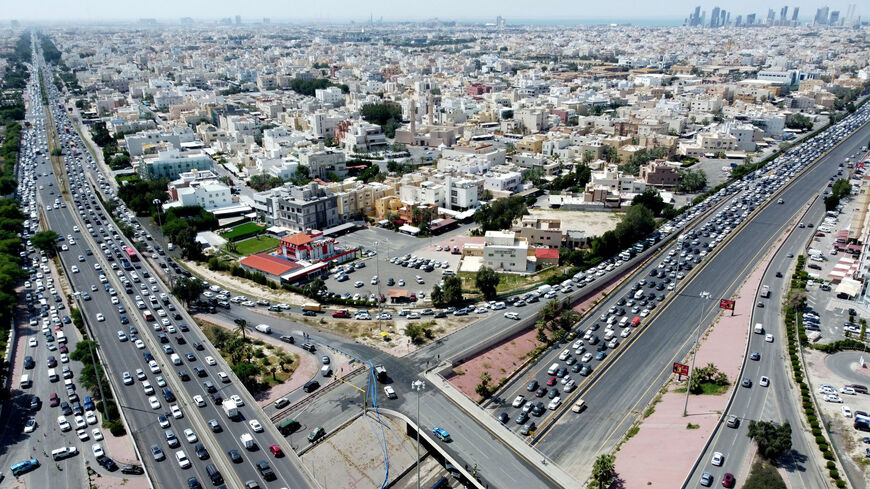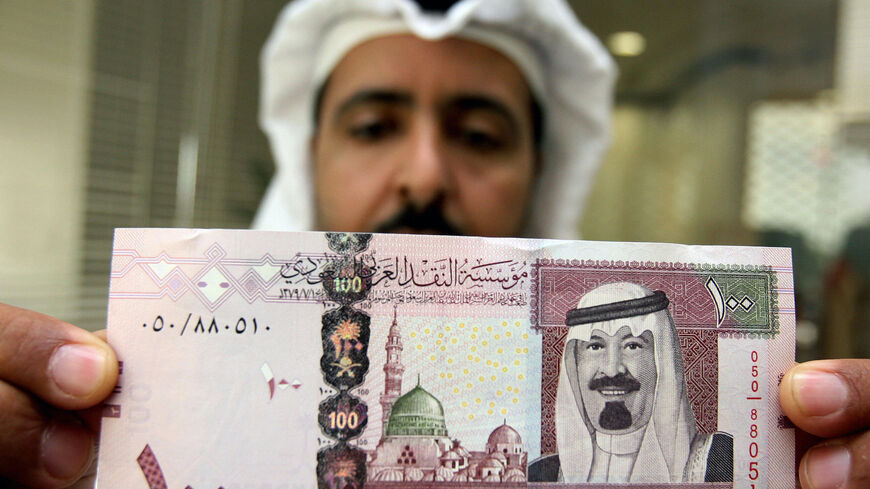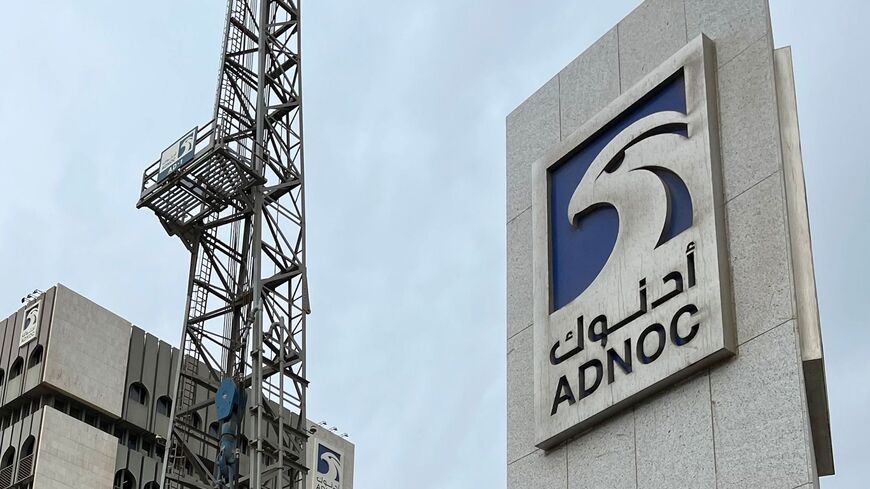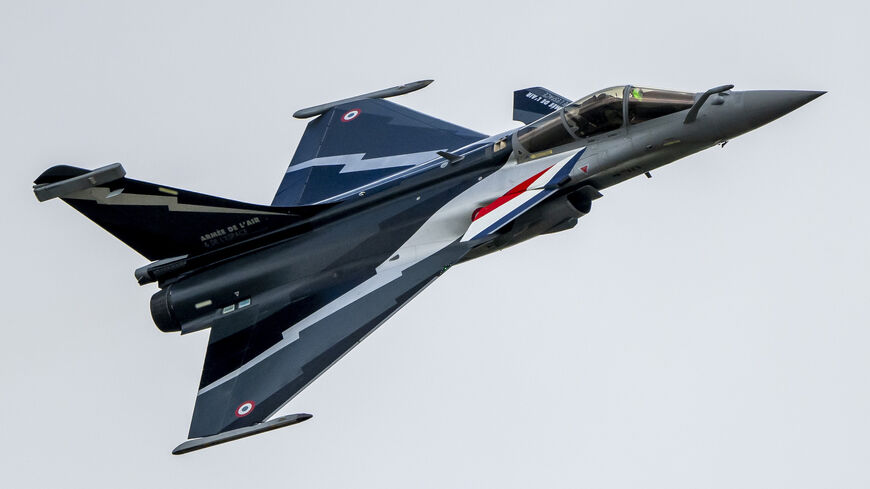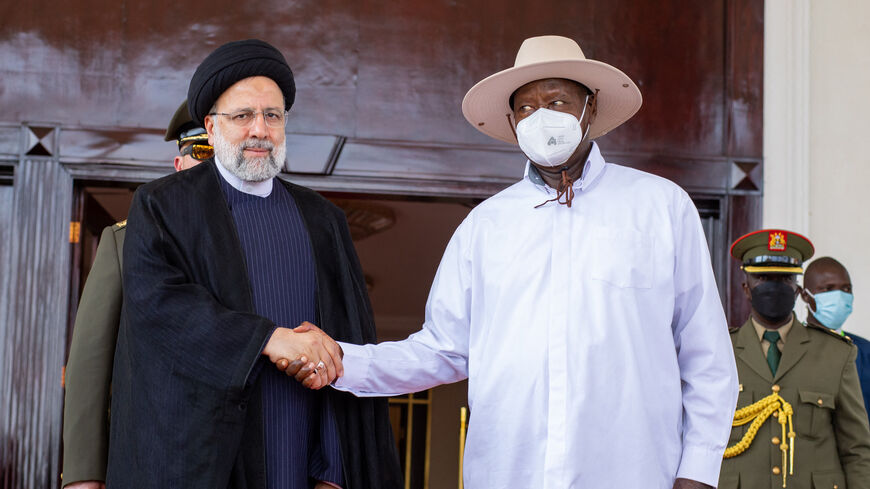Gulf governments enjoy fiscal flexibility; must spend wisely over coming years
Al-Monitor Pro Members
Dr. Robert Mogielnicki
Senior Resident Scholar, Arab Gulf States Institute in Washington
Jan. 27, 2023
The public sector revenues of governments in Gulf Cooperation Council (GCC) member states remain closely tied to proceeds from oil and gas exports. Elevated energy prices in 2022 permitted GCC states to begin 2023 in relatively strong fiscal positions. Short-term energy outlooks forecast lower oil and gas prices, but past fiscal reform progress will help reduce the negative impact on budgets. Regional governments must exercise smart spending to ensure momentum continues for their respective economic diversification efforts.
- The US Energy Information Administration forecasts suggest that the spot price of Brent crude oil will average $83 per barrel in 2023 and $78 per barrel in 2024 — down from $101 per barrel in 2022.
- GCC economies are expected to grow at half the rate of 2022, according to a median view from a Reuters poll of economists.
- Saudi Arabia approved a $296.7 billion budget for 2023, up from $254.3 billion in 2022, following a $27 billion budget surplus last year. Much of this spending will be allocated toward Saudi Vision 2030 projects and related programs. The Saudi Ministry of Finance anticipates a smaller $4.3 billion surplus this year.
- Qatar’s approved expenditures for the 2023 fiscal year will reach $54.6 billion, a small decrease of 2.6% over 2022, owing in large part to the completion of World Cup-related initiatives. The Qatari Minister of Finance said that public revenues, which he estimates will reach $62.6 billion and leave a $8 billion surplus, were based on an average oil price of $65 per barrel.
- The Qatari budget has prioritized spending allocations for the health and educations sectors.
- Oman’s 2023 state budget expenditures will reach an estimated $22.5 billion (51% for civil ministries, 35% for defense and security, and 14% for public debt service), while the government expects a $3.38 billion deficit, following a surplus of nearly $3 billion last year.
- Fitch Ratings affirmed a Stable Outlook for Bahrain but projects the country’s deficit to widen to 4.1% of gross domestic product in 2023 from 3.6% in 2022. The Bahraini government previously adjusted plans to balance the budget from 2022 to 2024.
- The UAE Cabinet approved the federal budget 2023-26 in October 2022, with a total estimated expenditure of $68.7 billion.
- Emirate-level budgets, however, are more significant determinants of fiscal trends in the UAE. Dubai alone approved a 2023-25 budget allocating $55.8 billion in expenditures. In early January, Dubai announced an ambitious $8.7 trillion economic plan for the next decade. However, the financial position of oil-rich Abu Dhabi remains significantly stronger than that of the remaining emirates.
- In November 2022, Kuwait’s National Assembly passed the state budget for the fiscal year that began in April. Estimated spending was $76 billion, with a minor deficit of around $400 million based on an oil price assumption of $80 per barrel.
Scenario 1: Gulf governments decide to boost expenditures throughout 2023, utilizing fiscal surpluses from 2022.
This is unlikely to happen because economic forecasts suggest fewer proceeds from energy exports in 2023, which will dent public sector revenues. The completion of major events in the region — such the 2022 FIFA World Cup — reduces immediate funding requirements. Moreover, many regional governments have already put in place medium term fiscal programs and multiyear budgets.
Expensive giga projects and Vision 2030 programs in Saudi Arabia may require additional expenditure allocations; however, the Public Investment Fund is likely to shoulder more of the state’s project financing obligations.
Scenario 2: Gulf governments seek to make further fiscal cuts and drastic economic reforms over 2023.
Regional governments have emerged from the post-pandemic period and are better prepared to weather fiscal and other shocks. Policymakers are therefore unlikely to introduce stringent new measures that will threaten ongoing economic recovery efforts.
The Government of Dubai even allocated 5% of budget expenditures for a special reserve to protect against global situations that could impact the economy.
Gulf governments will continue to follow the economic development trajectories shaped largely by country visions, medium term fiscal programs and multiyear budgets. While 2022 yielded broad fiscal surpluses, 2023 will give way to smaller surpluses and manageable deficits. Governments must deploy these fiscal resources in manners that ultimately contribute to long-term fiscal consolidation and sustainable economic diversification.
Dr. Robert Mogielnicki’s professional affiliations span top-tier research institutes, academic institutions, NGOs and consultancies. He is a Senior Resident Scholar at the Arab Gulf States Institute as well as an Adjunct Assistant Professor at Georgetown University and a Professorial Lecturer at George Washington University. He serves as an Adviser with Freedom House and an External Consultant with Eurasia Group. Dr. Mogielnicki is the author of "A Political Economy of Free Zones in Gulf Arab States" (Palgrave Macmillan 2021), and he is currently working on an edited volume about the political economy of sovereign wealth funds in the Middle East and Asia. He is a Term Member at the Council on Foreign Relations and a member of the Board of Advisers at Henley & Partners, an investment migration firm. The Middle East Policy Council listed Dr. Mogielnicki in their inaugural 40 Under 40 awards for influential Middle East experts. He holds a DPhil from Magdalen College, University of Oxford.
To get Al-Monitor PRO updates straight to your phone, text ALM to (202) 978-4542.
We're glad you're interested in this memo.
Memos are one of several features available only to PRO Expert members. Become a member to read the full memos and get access to all exclusive PRO content.

Already a Member? Sign in
The Middle East's Best Newsletters
Join over 50,000 readers who access our journalists dedicated newsletters, covering the top political, security, business and tech issues across the region each week.
Delivered straight to your inbox.
Free
What's included:
Free newsletters available:
- The Takeaway & Week in Review
- Middle East Minute (AM)
- Daily Briefing (PM)
- Business & Tech Briefing
- Security Briefing
- Gulf Briefing
- Israel Briefing
- Palestine Briefing
- Turkey Briefing
- Iraq Briefing
Premium Membership
Join the Middle East's most notable experts for premium memos, trend reports, live video Q&A, and intimate in-person events, each detailing exclusive insights on business and geopolitical trends shaping the region.
$25.00 / month
billed annually
$31.00 / month
billed monthly
What's included:
Memos - premium analytical writing: actionable insights on markets and geopolitics.
Live Video Q&A - Hear from our top journalists and regional experts.
Special Events - Intimate in-person events with business & political VIPs.
Trend Reports - Deep dive analysis on market updates.
We also offer team plans. Please send an email to pro.support@al-monitor.com and we'll onboard your team.
Already a Member? Sign in


